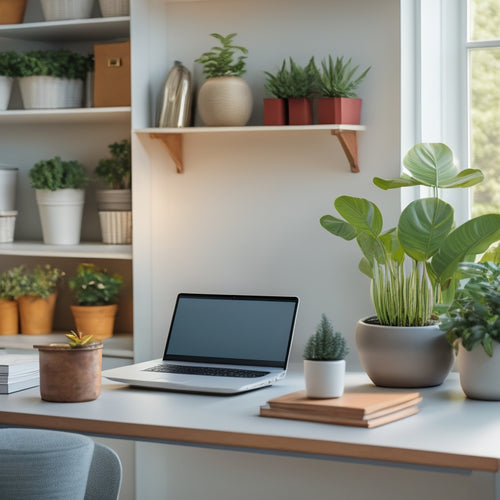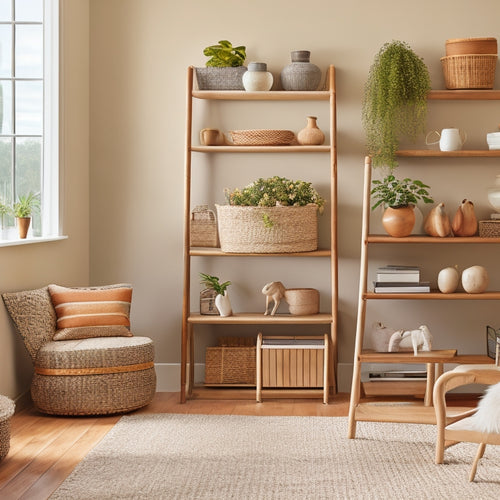
Harpists' Ultimate Organization Guide for Success
Share
As a harpist, I've learned that getting organized is key to unleashing my full potential, from effortlessly accessing scores to delivering flawless performances, and it all starts with a solid system in place. I categorize my sheet music, store it in labeled file boxes, and consider switching to digital scores to save physical space. I maintain a detailed event journal to stay on top of client requests and performance details. To optimize my practice routine, I target specific skills and prioritize memorization and visualization exercises. By implementing these strategies, I'm able to streamline my workflow, reduce stress, and shine on stage - and there's even more to explore.
Key Takeaways
• Categorize and store sheet music in labeled file boxes for quick access and to save physical storage space.
• Maintain a detailed event journal to keep track of client requests, event details, and follow-up tasks.
• Develop a structured practice routine targeting specific skills and repertoire to optimize performance preparation.
• Utilize efficient storage systems, such as shelving and hooks, to streamline storage of harp cases, accessories, and music sheets.
• Implement a digital sheet music system to reduce clutter and enhance overall organization and efficiency.
Mastering Music Management
I categorize my sheet music into genres, such as classical, pop, and folk, and store them in labeled file boxes to guarantee quick access when preparing for performances or rehearsals. This efficient music storage system saves me time and reduces stress.
I'm also considering switching to digital sheet music to free up physical storage space.
When it comes to client communication, I maintain a detailed event journal to keep track of client requests, event details, and follow-up tasks. This journal ensures I stay organized and provide excellent service to my clients.
Optimizing Performance Prep
To ensure a flawless performance, it's essential to develop a structured practice routine that targets specific skills and repertoire, enabling you to fine-tune your craft and build confidence on stage.
I prioritize performance techniques, such as memorization and visualization exercises, to perfect my craft. Effective time management is also vital, as I allocate specific practice sessions for each piece, ensuring I stay on track.
My practice strategies include recording myself, practicing in front of a mirror, and rehearsing in different environments to simulate performance conditions. By doing so, I can identify areas for improvement and refine my skills, ultimately leading to a polished and enchanting performance.
Streamlining Storage Systems
How can a harpist efficiently allocate space and resources to store their instruments, equipment, and merchandise, ensuring everything is easily accessible and organized for best performance preparation? To achieve this, I employ a few strategies. Firstly, I use efficient shelving to store my harp cases, music sheets, and accessories. I also utilize creative hooks to hang my harp cases, gig bags, and other essential items. This not only saves space but also makes it easy to grab what I need quickly.
| Storage Solution | Description |
|---|---|
| Efficient shelving | Store harp cases, music sheets, and accessories |
| Creative hooks | Hang harp cases, gig bags, and essential items |
| Labelled cubbies | Organize music sheets and accessories with Washi tape |
| Vintage suitcases | Store CDs and merchandise for gigs |
| Thrift store finds | Utilize unique items for packing materials |
Frequently Asked Questions
How Do I Prioritize Tasks When Managing Multiple Music Projects Simultaneously?
When juggling multiple music projects, I prioritize tasks by segmenting them into smaller chunks, then schedule focused time blocks for each task, ensuring I dedicate quality time to each project without feeling overwhelmed.
What Are the Essential Items to Pack in a Harp Emergency Kit?
When prepping my harp emergency kit, I prioritize essentials like spare Harp Strings, a tuner, and performance anxiety-reducing tools like aromatherapy oils and a stress ball to guarantee I'm always stage-ready and composed under pressure.
Can I Use a Tablet Instead of Sheet Music During Performances?
As I take the stage, my tablet shines like a beacon, illuminating my digital notation, freeing me from sheet music's weight. I prop it on a music stand, ready to perform with ease, precision, and a touch of modern flair.
How Do I Politely Decline a Gig That's Not a Good Fit for Me?
When declining a gig, I set clear boundaries by politely expressing gratitude and offering honest excuses, such as prior commitments or unsuitable fit, while maintaining professionalism and leaving room for future opportunities.
What's the Best Way to Sanitize My Harp After a Performance?
After each performance, I prioritize harp hygiene by wiping down surfaces with a gentle disinfectant and polishing the pedals to prevent germ buildup, ensuring my instrument remains clean and germ-free for the next show.
Conclusion
As I tie up the final strings of this guide, I'm reminded that organization is the harmony that brings melody to our chaotic music careers.
By implementing these strategies, you'll find your rhythm, and your music will flourish. Don't let disorganization silence your art - take control, and let your harp sing.
With every note in its place, you'll strike a chord with success, and your music will resonate with the world.
Related Posts
-

What's the Best Home Organization Online Course?
You're looking for a high-quality home organization online course to simplify your space and life. With so many optio...
-

3 Kitchen Hacks for a Clutter-Free Home
You can achieve a clutter-free kitchen by implementing three simple hacks: clear off countertops by designating spots...
-

Budget-Friendly Home Storage Hacks and Solutions
With a little creativity, you can achieve a clutter-free home without breaking the bank. Start by decluttering one ar...


